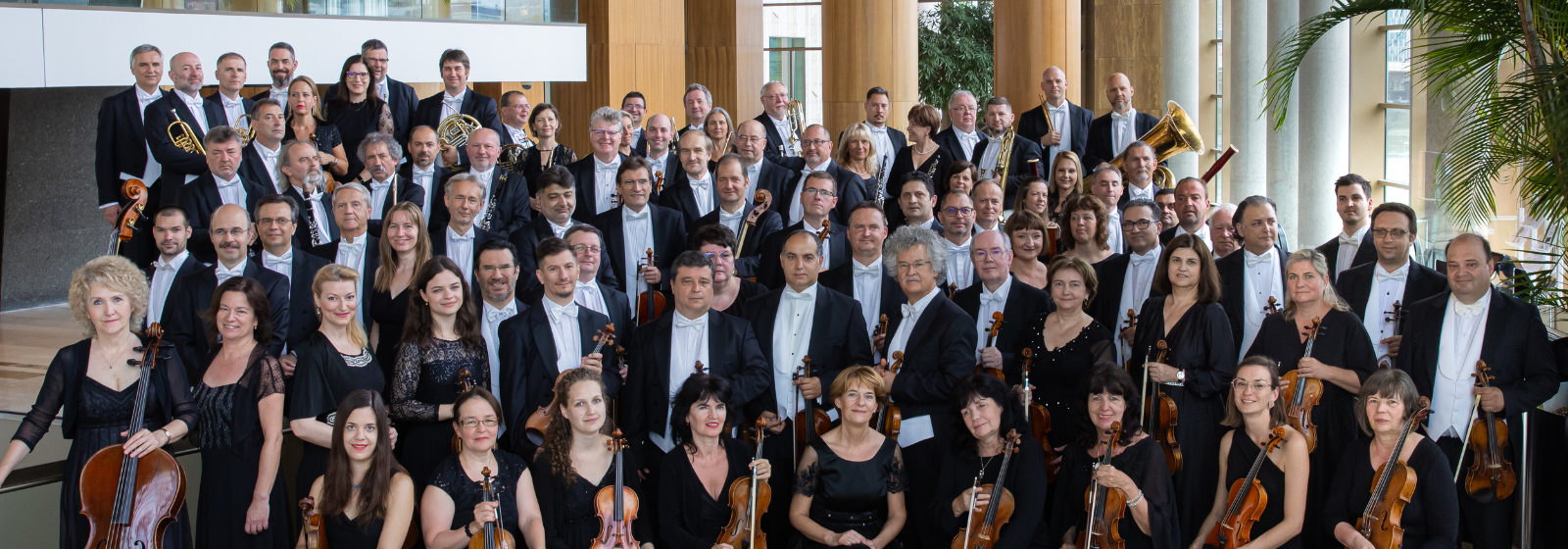
Budapest
#WE’RE100YEARSOLD – Jubilee Concert
Non-season ticket concert
Béla Bartók: Cantata profana
Franz Liszt: Piano Concerto in A major
***
Johannes Brahms: Symphony No. 1 in C minor, op. 68
Dezső Ránki – piano
Boldizsár László – tenor
Gábor Bretz – bass-baritone
Hungarian National Choir (choirmaster: Csaba Somos)
Hungarian National Philharmonic Orchestra
Conductors: János Kovács and György Vashegyi
The Hungarian National Philharmonic Orchestra is celebrating its centenary. The orchestra began its life under another name, the Metropolitan Orchestra, in 1923. Its current name is synonymous with the artist who put the orchestra on a new footing a quarter of a century ago: Zoltán Kocsis. The celebration’s glamour will be provided by the music of Bartók, Liszt and Brahms. János Kovács and György Vashegyi, two of the most prestigious conductors in Hungary (the latter having served as General Music Director of the Hungarian National Philharmonic since last autumn), will lead the musicians, and in Dezső Ránki, we can look forward to a world class soloist who has been a regular guest of the Hungarian National Philharmonic Orchestra for more than half its 100 years of concert performances.
The message of the opening piece of the concert, the Cantata profana, contained in symbolic form, is a fitting one for this important workshop of Hungarian national music culture that is currently celebrating its centenary, since in this composition, Bartók put just as much faith in the commitment to the New as he did in his advocacy of a “pure source”. Liszt laboured on his Piano Concerto No. 2 in A major for more than 20 years, from 1839 to 1861. The work was based on the idea of thematic metamorphosis and constitutes a single, connected movement, divided into six sections. Brahms’s Symphony No. 1 represents the spirit of continuity by showing the unity of tradition and innovation, since while the style of expression and palette of harmonies and colours exhibited in the work are all Romantic in nature, its structure draws strongly from the legacy of Beethoven.
Dezső Ránki (b. 1951) launched his career with an acclaimed victory in the International Robert Schumann Competition in Zwickau in 1968. For more than half a century, the world-famous musician has interpreted the masterpieces of Haydn, Mozart, Beethoven, Schubert, Chopin, Schumann, Debussy, Ravel, Bartók and many others with impeccable perfection. The music of Liszt holds a special place in his repertoire. The popular and versatile tenor Boldizsár László can boast an exciting career that has gone through many twists and turns, from his decade-long membership in the Cotton Club Singers to the opera stage. With his rich vocal chords, bass-baritone Gábor Bretz is truly one of Hungary’s world-famous opera and concert singers: audiences have raved over his performances everywhere from Milan’s La Scala to New York’s Metropolitan Opera. János Kovács (b. 1951), who has enjoyed an enduring relationship with the Hungarian National Philharmonic Orchestra, is one of the most sought-after, knowledgeable and experienced conductors in Hungary, though he is also famous for his exceptional artistic humility and empathy towards his musical partners. Although György Vashegyi, the HNPO’s new General Music Director, is best known to the concert audience as the founder of the Purcell Choir and the Orfeo Orchestra, over the course of his more than 30-year career, the conductor has demonstrated universal interests, performing works from the 19th- and 20th-century repertoire along with early music.

